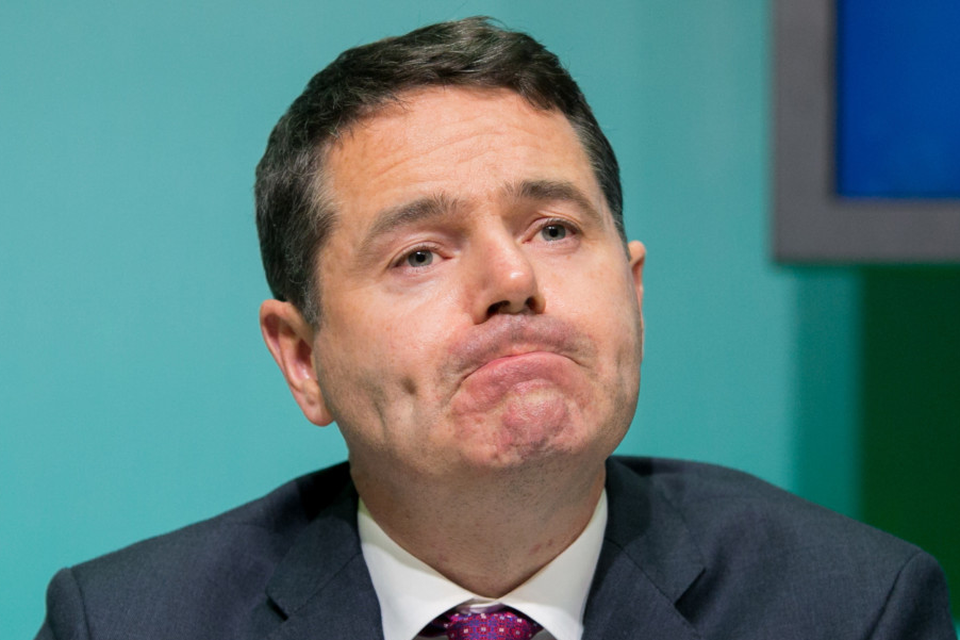Employers want to pay half of recommended 6pc into auto-enrolment pension
Finance Minister Paschal Donohoe. Photo: Collins Dublin, Gareth Chaney
Employers want to pay just half what the Government is proposing into a new 'auto-enrolment' scheme for 860,000 workers with no pension.
Ibec has proposed that employers put a minimum of 3pc of pay into the scheme that is due to be rolled out from 2022. This would be matched by staff. However, the Government has proposed that employers eventually contribute twice this amount.
The Department of Employment Affairs and Social Protection said they should pay a minimum of 6pc from 2027 under a proposal launched earlier this year.
The level of contributions that will eventually be made by employers and employees has still to be decided. But the portion of wages that will be plunged into the scheme will be crucial to its success.
The Government aims to prevent around 860,000 workers who only have the State pension to rely on in retirement from facing poverty in old age.
The majority of them work in low-paid jobs, including in retail and hotels.
Under the Government's plan, workers aged between 23 and 60 and earning more than €20,000 a year would be automatically enrolled in the scheme. The State would contribute €1 for every €3 saved.
Ibec's submission to Government on the proposed scheme says it supports its proposal that minimum employer and employee contribution rates are initially set at a modest 1pc.
But it argues that higher contributions after this would hit the competitiveness of Irish-owned businesses. It also says it could put workers off staying in the scheme and cause them to opt out.
The Ibec document says the "extremely rapid auto-escalation" of contributions would cause significant numbers to opt out. This would "defeat the whole purpose of the system".
Meanwhile, pensions experts have warned that some of the returns from the planned auto-enrolment pension scheme could be very low.
The Society of Actuaries said there was a risk that those who do not specify where their contributions will be invested will be put into a "default fund".
Such a fund will likely have very low, or no, investment growth. This will lead to disappointment for those saving into the new pension scheme.
In a submission to the Government, the society argued that cash funds should instead be more accurately described as "low return".
Join the Irish Independent WhatsApp channel
Stay up to date with all the latest news















